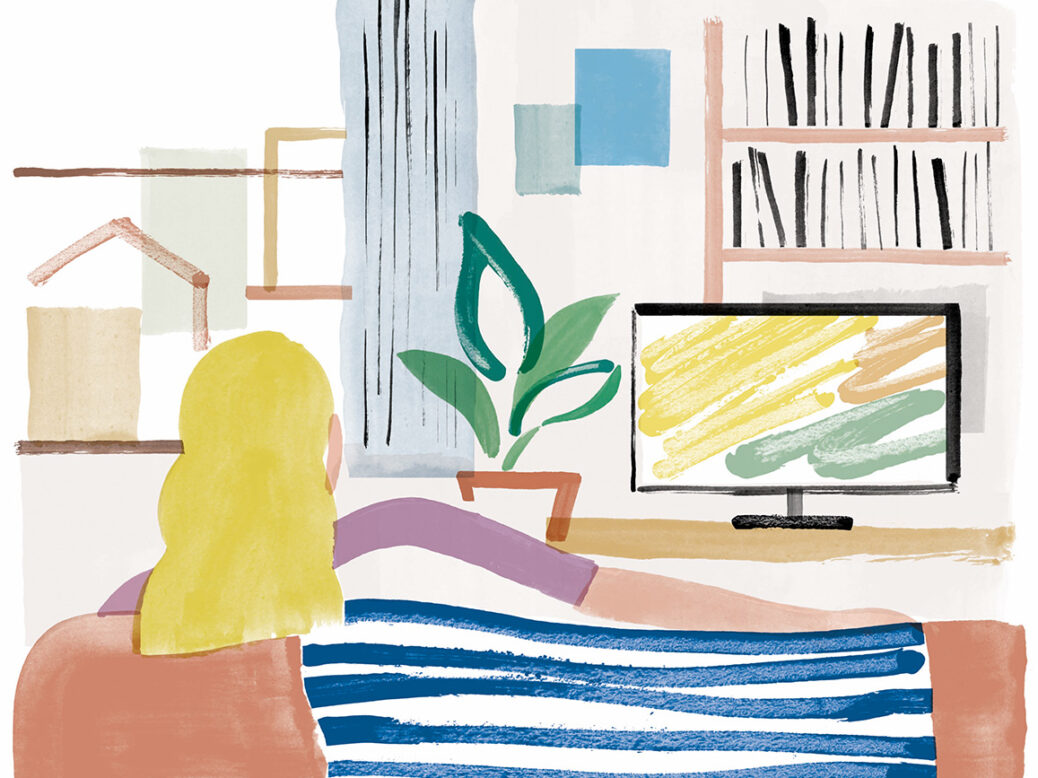
Among the many TV shows I entreat friends, colleagues and unsuspecting acquaintances to watch – Bodies, Giri/Haji, Mystery Road, Kalifat – is a 2017 BBC documentary called (and you can imagine the conservative ire it attracted) No More Boys and Girls. In it, a Year 3 class is put through a low-key social experiment looking into the pupils’ understanding of the ways girls and boys differ, and how it affects their behaviour and performance. “Men are better because they’re stronger and they’ve got more jobs,” says one boy to camera. “I think men are better at being in charge,” says a girl. Only boys can play football, says another, “because they’re fitter and stronger”. These children are seven years old.
In one activity, the pupils are asked to rate how they think they will perform at a funfair-style strongman game, where a target is hit with a mallet in an attempt to ring a bell (bearing in mind that there is no difference in the muscle mass of similar-sized boys and girls before puberty). Their real scores showed the girls tended to significantly underestimate their strength; after predicting she would score a five and hitting a ten, one girl cries “because I didn’t think I could do it at first”.
This scene struck me because I know exactly how the girls felt. As a child I would do whatever I could to avoid the ritual humiliation of PE lessons, sports days, playground games. On Friday mornings in Year 7 I had my favourite lesson – art – followed by my least favourite – PE – and each week the former was ruined by the anxious anticipation of the latter: the ball I could not hit, the bleep test I could not run, the somersaults I could not do. My physicality did not suit the games that I was taught encompassed exercise, and so I counted myself out. I disregarded my body, its agility and its strength.
Only in the past five or so years have I begun to unpick this childhood narrative. It started with a women-only weightlifting club, where I found not just a community more encouraging and diverse than any I’d before seen in a gym or sports hall, but exercise that felt intuitive and empowering. I was surprised by my own strength, by what my body could do.
[see also: My worst summer ever is finally over and I sense my old self returning]
My search for exercise that goes beyond the rigid definitions of pitch and track led me, one recent Saturday morning, to my first – don’t laugh – pole dancing class. (It’s OK if you laughed, everyone does.) The contrast between these two activities pleases me: weightlifting, a traditionally male sport claimed by perfectly capable women; and pole dancing, traditionally female and done for the pleasure of men, recognised for the incredible strength it demands. There was a time when turning up at a new – and fairly, shall we say, exposing – exercise class would have had me imagining the myriad unique ways I might make a fool of myself. But now that the worst has happened, I find I am not so afraid any more. The next day my body aches from the inside out; even the muscles at the base of my thumbs are tender, and the tops of my feet and the insides of my thighs are streaked purple with bruises. I am proud of this pain – a little addicted to it.
I go to yoga, too, and with each week I feel my hamstrings becoming less tight, my hips opening. It has taken me – a lifelong Londoner – only three months of being A Cyclist to come to hate travelling by Tube. The routine of it all helps bring structure to weeks that feel ill-defined without the nine-to-five of an office, without a partner awaiting me on the sofa: yoga on Tuesdays and Sundays, weights on Thursdays, pole on Saturdays. And there is no sleep as delicious as that brought by sheer physical exhaustion.
My body is changing, too: it is more solid, growing angular; callused and bruised. Under my fingertips it feels unknown, alien, in a way that is not entirely unpleasant. It is quite different to the body my ex once knew; no longer his, but all mine, and for my purposes. I am stronger, physically, than I have ever been, and this helps on the days when my mind feels weak.
When I think about the ways we (and by “we” I primarily mean women) underestimate ourselves, count ourselves out, make ourselves lesser, the small strength of my body feels like defiance.
[see also: Our words for describing the climate are changing – can they spur us to action?]
This article appears in the 10 Nov 2021 issue of the New Statesman, Behind the Masks





